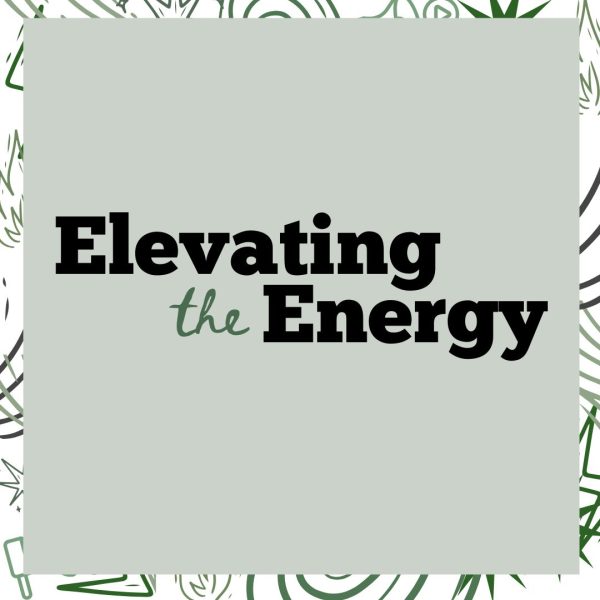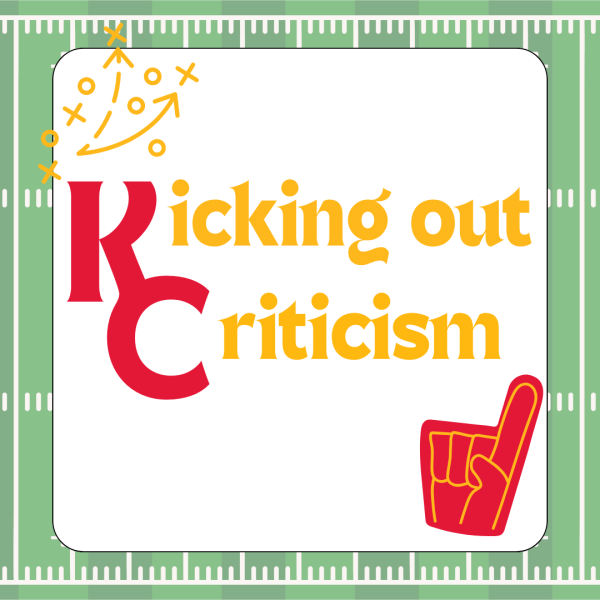Students discuss the rising issue of sleep deprivation in teenagers
opinion / the standard / jan. 2019 | 7
More than 87 percent of high school students in the United States get less than the recommended eight to 10 hours of sleep, according to the Stanford Medicine News Center. This statistic is probably not shocking to most, as it’s common to hear and witness the utter exhaustion among high school students in the middle of what seems to be a never-ending semester. Many teenagers face the conflict of whether to compromise sleep for schoolwork, extracurriculars or social events, and a majority seem to choose the latter activities over a good night’s sleep. This is true of freshman Emma Hildebrand, who said that while she would like to get eight hours of sleep, she usually gets “three to four on a good night.”
“I would say it’s really not [a priority] just because with school, I feel like that’s more important than me getting enough sleep, so I get my homework done instead of sleeping,” Hildebrand said.
Hildebrand is part of a large trend of losing sleep, which is growing into what the American Academy of Pediatrics called a “public health epidemic” in a 2014 report. Freshman Ali Fabrizius also gets less sleep than what’s necessary, as she said she gets around six to seven hours each night, and can see the issue among her friends.
“I would say probably half of my friends get enough sleep,” Fabrizius said. “They’re up with me talking with me a lot of times, or they fall asleep while on Facetime, but I would say half get a lot of sleep.”
It’s not only students who are recognizing the sleep deprivation in high school students, but teachers as well. Science teacher Lynn Martens said she’s very aware that many of her students don’t get the recommended amount of sleep, and her fellow staff members know it as well.
“We all — that I know of, all the ones I’ve ever conversed with —agree that our teenagers are sleep deprived,” Martens said. “It’s common knowledge. We know it’s a problem. We know that unfortunately a lot of the problem is outside of the classroom. So, as teachers we can provide them with the information, we can encourage them to get a good night’s sleep, but just the same, their parents are just as frustrated, too.”
While it’s clear there is a growing trend with sleep deprivation among high school students, there are the questions of why this trend is problematic, why it is increasing and how it can be remedied. As to the question of what the issue is in losing sleep, the effects of sleep deprivation are both minor and major. The Stanford Medicine New Center cites several daily struggles that result from too little sleep, including bad concentration, worsened memory and mood swings. Fabrizius said when she hasn’t gotten enough sleep, she’s unable to focus and easily frustrated, while Hildebrand said her main issue is being “irritable.” Martens said nervousness and anxiety are main effects of a lack of sleep.
“I would say agitation, edgy, lack of coordination, lack of focus, having inability to focus [are effects of sleep deprivation] — sometimes, just disorientation,” Martens said.
Along with the numerous effects of sleep deprivation that are easy to see in day-to-day life, there are other harmful longterm impacts of sleep deprivation, like being put at a greater risk for mental illness and suicide. According to Stanford University, a survey showed that the average South Korean teen sleeps only 4.9 hours a night, and their country’s suicide rate is one of the highest. Because sleep deprivation makes mood swings more intense, increases fatigue each day and has a tendency to become a never ending cycle, it makes sense that it would lead to depression or anxiety. When one is continually losing sleep — worrying over school and studying nonstop — anxiety is likely to be augmented. In addition, the exhaustion can create a lack of motivation and a more negative attitude. One’s body can physically feel as if it’s weighing one down, while the brain is filled with a fog. As
for the causes of sleep deprivation, it’s evident that academic rigor plays a leading role in the problem. The pressure to do well in school, and to sacrifice everything — even one’s health and wellbeing — is all-consuming in some students’ cases. Martens said students who are losing sleep are overextended and struggle to manage their time properly.
“It’s that they’re trying to be everything, do everything all at once,” Martens said. “Sometimes in the normal waking hours, what they are doing is not as efficient as what they could be doing, how they could be overlapping some things so they can set aside good quality sleep time.”
Yet while school is a dominant factor in students losing sleep, there is more to it than that. Teenagers have been in school for centuries and haven’t faced the issue of sleep so intensely as what is being seen now. There is a very important enemy to sleep in our modern world that cannot be overlooked: cell phones. Fabrizius said she loses sleep because she is “always on [her] phone or watching YouTube.”
“A huge variable that we talk about in our Anatomy and Physiology: now in today’s world, in your generation, is that cell phone right beside the bed,” Martens said. “It’s not that teenagers are [a] culprit to it, it’s our whole society, we’re just as bad. It’s the dinging and everything through the night and stuff like that. We don’t hit the sleep spindles, the depth of the sleep waves in our brain that we’re supposed to. You sleep and it’s almost like, not to the full depth, which is why we wake up and don’t feel recharged.”
According to the National Sleep Foundation, the blue light emitted from your phone “delays the release of sleep-inducing melatonin, increases alertness, and resets the body’s internal clock (or circadian rhythm) to a later schedule.” According to Stanford University, the biological clock in every human helps to regulate sleep and also affects each of your organs, as the brain signals to the rest of the body whether it’s day or night based on environmental cues — like light.
“I understand in today’s world that’s hard, but that’s what keeps us awake — laying there — is our melatonin can’t regulate, because we’ve just been looking at a screen so our brain thinks it’s noon, and then all of the sudden you’re laying there and going, ‘Yeah, but I can’t even drift off to sleep,’” Martens said. “Melatonin is also a natural remedy and just an over-the-counter. The other thing is keeping the cell phone out of the bedroom, even if they just put it in the bathroom to charge overnight, at least it’s away.”
Yet while teenagers’ circadian clocks are being altered to go to sleep later by technology and school, there is also a natural shift in bedtime that has nothing to do with a teen’s environment. According to a study done at Brown University said “teens experience a so-called sleep-phase delay. Their circadian rhythm — their internal biological clock — shifts to a later time, making it more difficult for them to fall asleep before 11 p.m.” Therefore, it’s completely natural and healthy for high school aged students to not be tired until later in the evening. The question that remains is, how can the education system work with teens’ biological clocks and not against it?
The Minneapolis Public School District officially changed their start time from 7:20 a.m. to 8:30 a.m. in the late 1990s, and the results are quite clear. According to Stanford Medicine News Center, students “reported feeling less depressed and less sleepy during the day and more empowered to succeed,” while there was higher attendance and an average of an added hour of sleep for each student each evening. Studies like this reveal promising incentive for schools to start later, which may be the most important step in improving sleep deprivation among high school students.
At the end of the day, schools should be molding the education system to cater not to students, but to young adults who are human beings. While it’s important to push high school students to reach their fullest potential, the ultimate goal should be the growth and wellbeing of the student as a whole — not just in academics, but in life. One step that would help high schools reach this goal is to delay start times by just a few hours. Until that goal is reached, Fabrizius said there are things she does to help her sleep better.
“I would say don’t be on your phone at [night], or put your phone aside, or put it downstairs or any type of technology that could keep you up longer, or read a book [before] bed,” Fabrizius said. “A lot of times that will help me fall asleep faster.”
In addition to putting your phone aside, the National Sleep Foundation said better sleep can be achieved by maintaining a sleep schedule, creating a pre-bed ritual, avoiding naps, and exercising. Another important factor is the atmosphere of where one sleeps: it should be cool, dark and completely silent. Martens also said there are new products that may be able to increase sleep.
“This sounds weird, but they’re doing some research right now, and they’re starting to get some interesting results on those weighted blankets. They’re starting to see some really interesting stuff with people getting better sleep with that. If people have Seasonal Affective Disorder, having one of the full-spectrum lights that you buy really, really helps. Turning that on in the morning for a set amount of time — about 20 to 30 minutes — helps to set your melatonin so that you are tired by 10 o’clock at night.”
| laurenurschel







